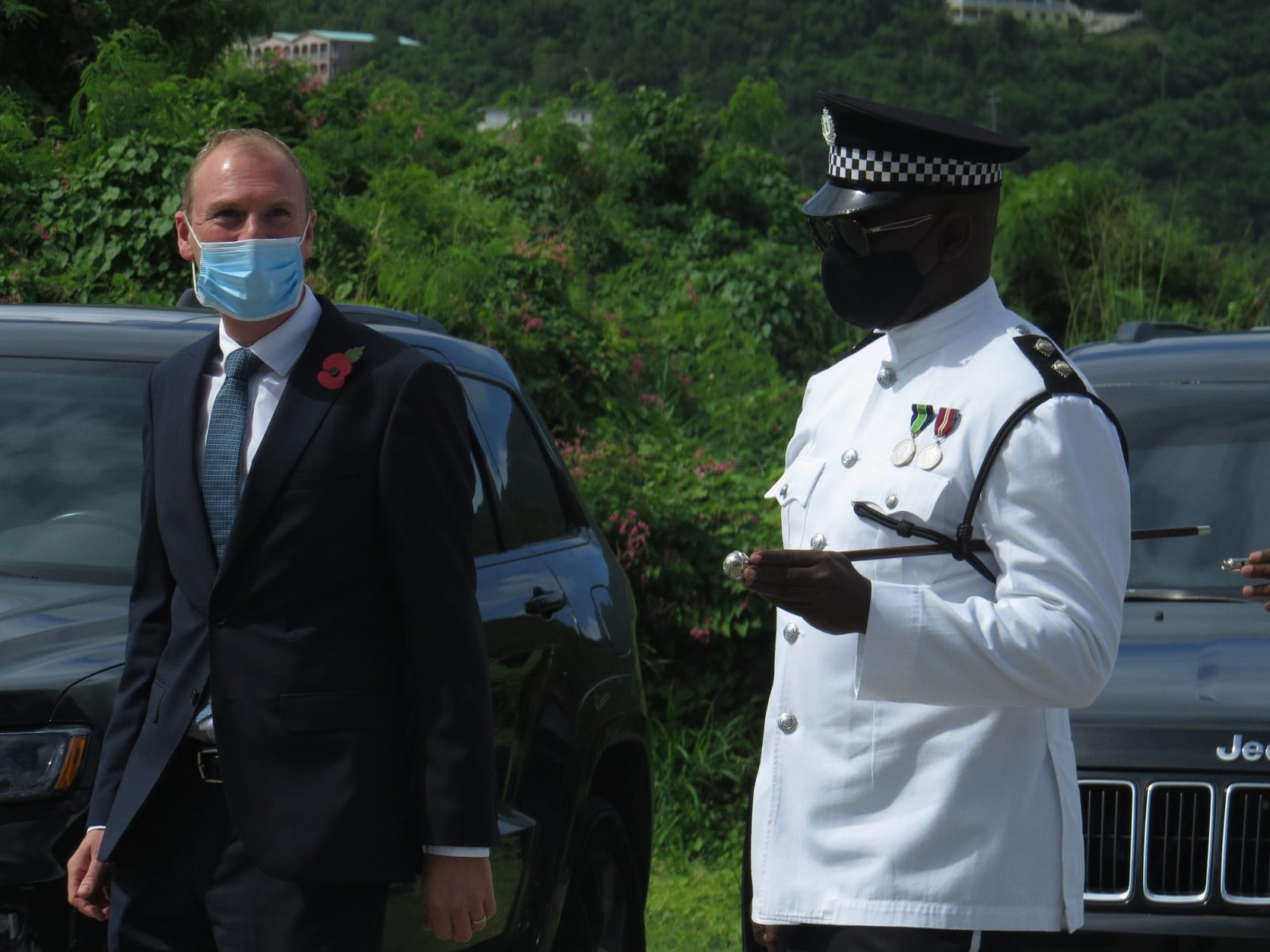While this year’s Speech from the Throne delivered by Governor Gus Jaspert last Thursday in the House of Assembly repeated many familiar promises for digital advancement and overhauls of major legislation like the Labour Code, it also tackled new territory, mostly driven by the Covid-19 pandemic and ensuing economic challenges.
The speech, prepared within the Premier’s Office after consultation with other ministries, sets the government’s priorities for a new legislative session that commenced last week with the first sitting of the HOA’s third session.
The agenda focused last year on environmental issues, but this year’s speech highlighted economic innovation. Several proposed bills aim to bolster economic development, like the BVI Investment Bill and Incentive Legislation Bill.
“Our government will deliberate each piece of legislation within the context of building a stable, diverse and competitive economy through trade, industries and the people of the Virgin Islands,” Mr. Jaspert said.
A key driver for this legislation seemed to be the Covid-19 pandemic, which brought the territory’s tourism sector to a screeching halt earlier this year.
Though he did not detail any specific measurable objectives, Mr. Jaspert said government has a vision to “transform the Virgin Islands into a leading regional economy through innovation, entrepreneurship and local and foreign investment by 2025.”
But economic issues weren’t the only focus of the 45-item agenda.
The governor outlined the need for supporting education systems and for digital modernisation in the “new regular” of living amid a pandemic.
“Modern digital technology provides the opportunity to improve convenience and access to government services and enhance the efficiency of the delivery of many government services to the citizenry,” he said.

Looking back
Preceding the speech, HOA Speaker Julian Willock drew attention to the fact that the governor had not yet assented to three bills that passed the House recently: the Advanced Passenger Information Act 2020, the VI Cannabis Licencing Act 2020, and the companion Drug (Prevention of Misuse) Amendment Act 2020.
The first bill was part of several border control measures to pass the House in June. It outlines what information captains arriving by air or sea must provide about their passengers before getting to the VI. The bill allows passenger information to be shared with law enforcement, security agencies, and intelligence agencies at the national, regional and international levels. The relevant security agency can use passenger information to conduct screening against watch lists.
In July, the House passed the VI Cannabis Licencing Act, which provides a framework for a medical marijuana industry in the territory. The companion bill addresses the criminal justice aspects of legalising cannabis in the territory.
Mr. Jaspert did not address those items during the session last week.
The House did pass several items from the 2019 throne speech, including the Consumer Protection Act; the Merchant Shipping Act; the Medical, Dental, and Allied Health Professionals Act, and gambling legislation.
A few items from last year’s Speech from the Throne were omitted, including plans to adopt the Nairobi Convention on Wreck Removal; amendments to the Physical Planning Act 2004; a Witness Anonymity Bill; whistle-blower legislation; a Beach Use Policy; AirBnB tax legislation; yachting aid legislation; and Tourism Act regulations.
Moving forward
In addition to modernising the HOA’s protocols by updating its Standing Orders, Mr. Jaspert said government would also work to get more public input in the future.
“Our government values public input and debate on bills and will endeavour to increase public consultations on all legislation coming to and presented in this honourable House,” he said.
Unfortunately, this outreach did not extend to the sister islands as planned this year.
“In the last session, our government was hoping to have at least one sitting per year on a few sister islands, so that members of the public can get further experience and exposure to the proceedings and to be a part of monitoring the progress of our government’s legislative agenda,” Mr. Jaspert said. “However, due to the challenges with Covid-19, plans were changed to ensure that everyone remains safe.”
A number of legislative items aim to address living amid a pandemic, including changes to the courts, flexible working arrangements and economic issues.
Regarding work arrangements, Mr. Jaspert said the proposed bill “will come at a time where officers and employees continue to manoeuvre through their personal hurricane recovery efforts and the challenges caused as a result of Covid-19.”
Mr. Jaspert concluded his speech by wishing the House and everyone in the VI well in the future as he prepares for the end of his term.
First session
As the first session got under way, nine bills were introduced for a first reading: the Disaster Management Act 2019, the Liquor Licences Act 2019, the Police Act 2019, the Data Protection Act 2019, the Electronic Transfer of Funds Act 2019, the Electronic Filing Act 2019, the Electronic Transactions Act 2019, the Audio Visual Link (Amendment) Act 2019, and the Eastern Caribbean Supreme Court (Virgin Islands) (Amendment) Act 2020.
Dawn Smith, the new attorney general, introduced the Supreme Court bill and said she would explain its provisions at the second reading in a future sitting.
![]()